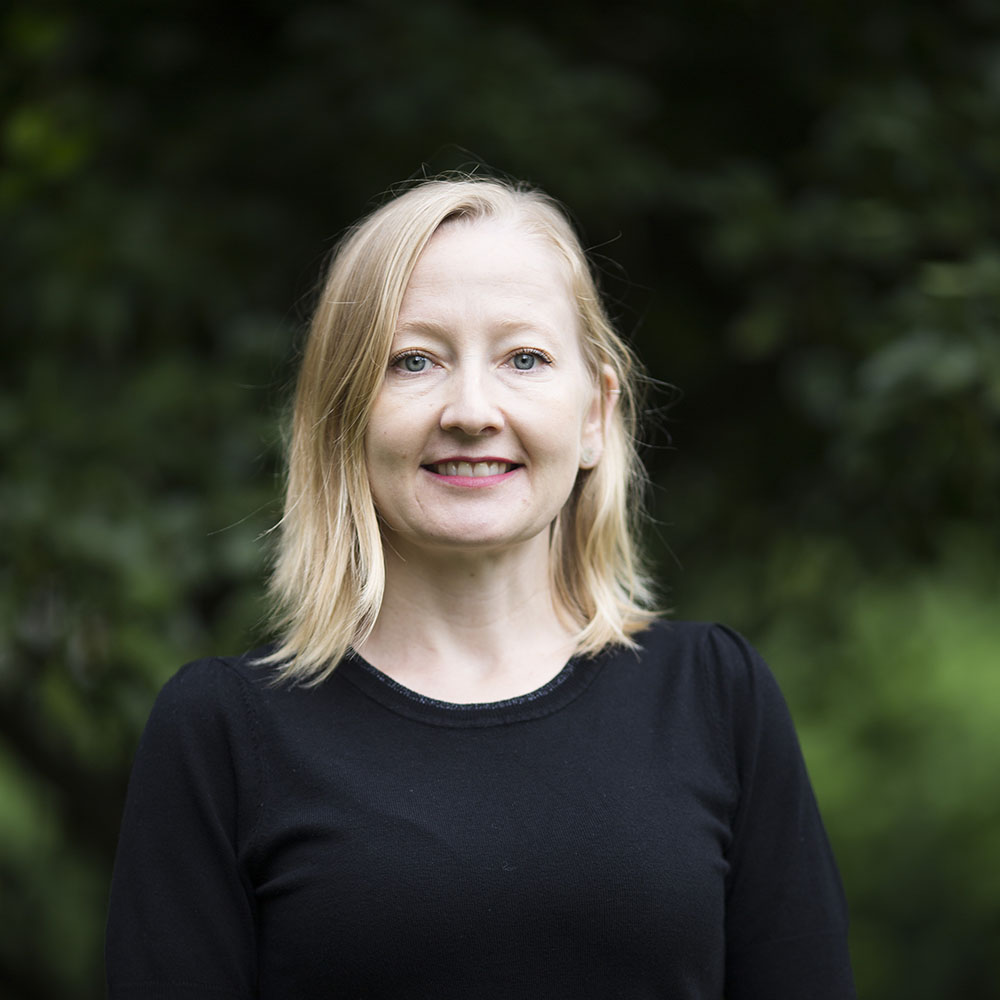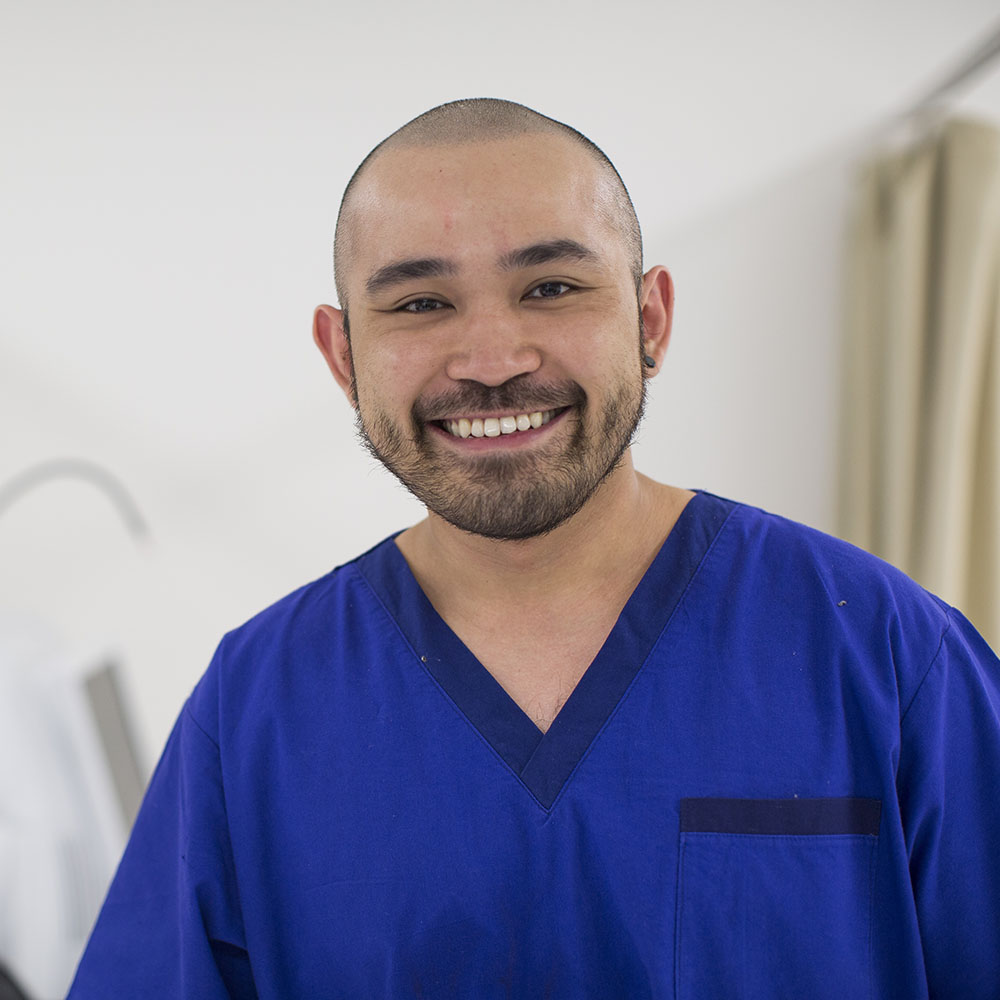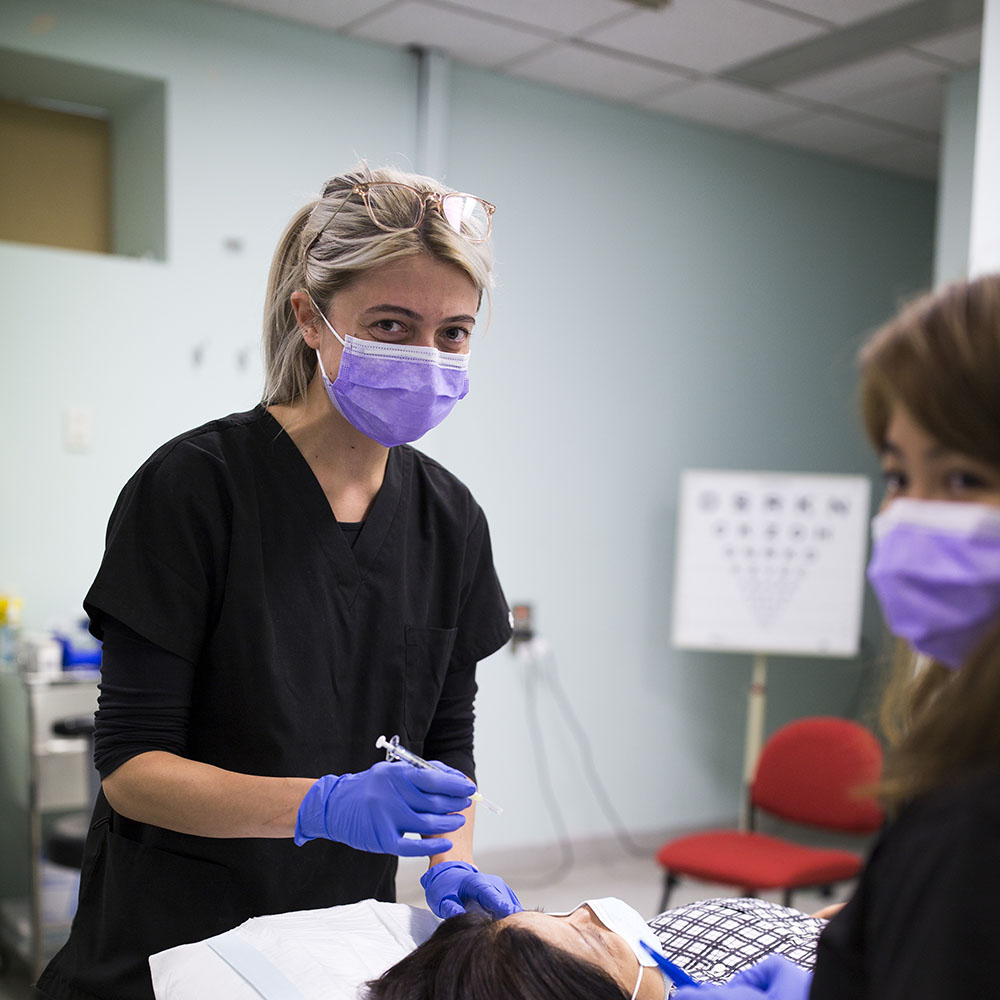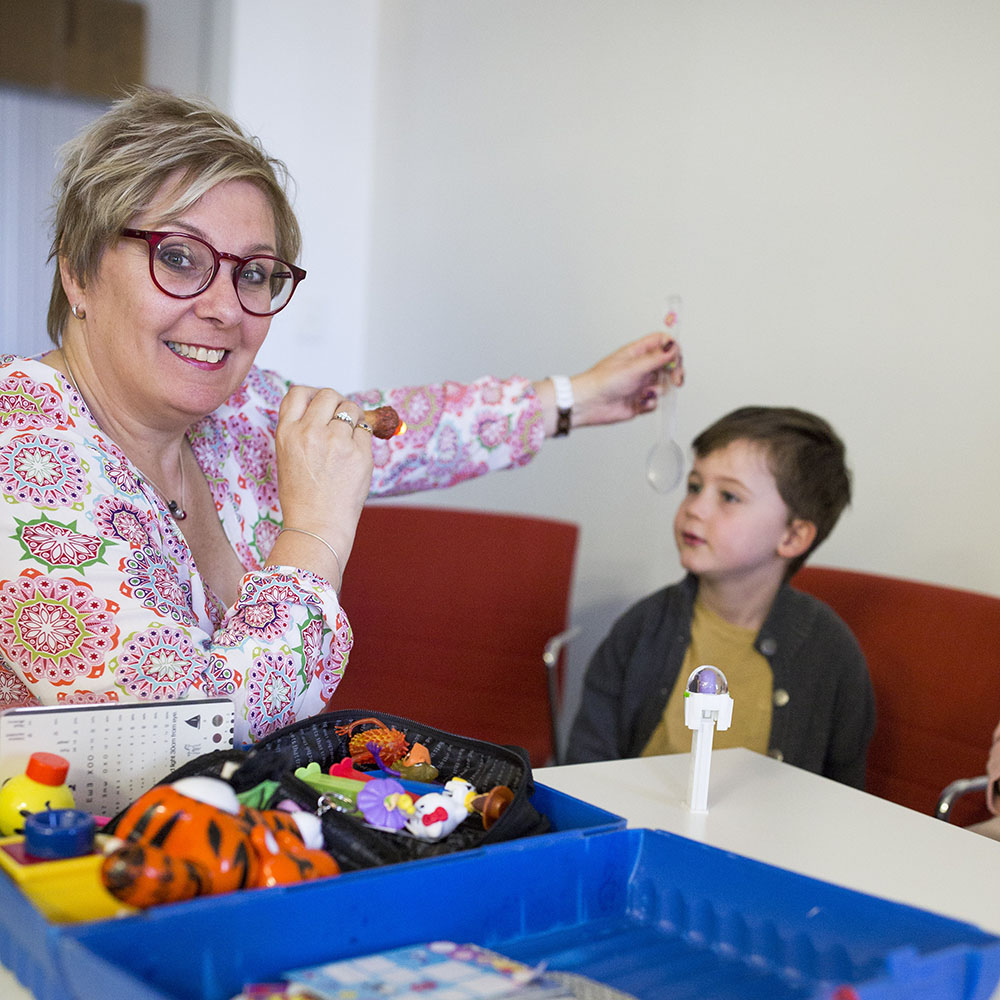News
Meet the team: orthoptists in vision research
This World Orthoptic Day (June 7), let’s take a moment to celebrate and raise awareness of the important work orthoptists do daily.
Orthoptists are vital to both vision research and caring for our clinical trial participants.
So what is an orthoptist? An orthoptist is an eye health professional who assesses, diagnoses and manages eye disorders and diseases.
World Orthoptic Day, which follows Orthoptics Awareness Week, is the perfect opportunity to meet some of CERA’s talented orthoptist team and find out what drives them.

Fleur O’Hare
What do you do at CERA?
Being an orthoptist at CERA means I get to be involved in cutting edge research looking at potentially sight-saving treatments for people with eye disease affecting the retina.
Not only do I get to use my orthoptic clinical skills to perform comprehensive eye assessments, but I also get to step into a patient support and health education role.
I’m able to help people understand more about the ins and outs of their eye condition and if appropriate for them, guide them through their journey as a participant in a research treatment study.
What’s the best thing about your job?
There is nothing more satisfying than knowing that my work helps find possible treatments for people with retinal disease. In doing so, offering some hope to people about the future for their vision.
I am motivated to get out of bed each day as I believe science and discovery in the eye research field yields eye-opening results!
What made you become an orthoptist?
Being a student of art and science, I was initially drawn to this career given I could peer into the kaleidoscope of colour and detail of the eye and understand more about the physiological link between the eye and the rest of the body in the one hit!
However, since those early days, I have a far greater appreciation of the breadth and depth of the work that an orthoptist does.
My orthoptic career allows me to provide a valuable health service and contribute to progress into improving patient care and management.
What does World Orthoptic Day mean to you?
For me, it’s an opportunity to tap my colleagues on the shoulder, here and abroad, and remind them about the important role orthoptists play in furthering eye-related science and research.
It’s a time to celebrate the enormous contribution we make to improving the lives of patients who suffer eye disease.

Tony Pham
What do you do at CERA?
I am a clinical trial coordinator in the Macular Research Unit. A large part of my job is working with ophthalmologists, optometrists, nurses and other orthoptists to bring in research participants for clinical trials.
The trials that I’m currently working on aim to test new machine capabilities. We want to see if these machines would be effective as diagnostic tool, to predict age-related macular degeneration (AMD) progression.
The other aim is to learn more about AMD by identifying novel prognostic biomarkers.
What’s the best thing about your job?
The excitement I hear from our participants when they find out that there are treatment options available for people with AMD.
The ability of research to give someone hope is gratifying.
What made you become an orthoptist?
I enjoy helping others, interacting with people and science, so for me working in healthcare was obvious.
Working as an orthoptist in research has exceeded my expectations of what a career in healthcare can offer.
At CERA I have been given the opportunity to collaborate with a team with people who have such altruistic views, who are well-informed and passionate, and I have learnt so much from being part of the Macular Research Unit.
What does World Orthoptic Day mean to you?
Representation, acknowledgement, and celebration.

Lilian Stojimenov
What do you do at CERA?
I am a Clinical Trials Research Coordinator. My role involves a lot of organisational and problem-solving skills.
As a coordinator, you organise the research activities of the trial and participants. This can include tasks such as scheduling, preparing case report files for scheduled visits in accordance with the protocol, data entry, ethics submissions, venepuncture, ECG, blood processing, and liaising with sponsor and monitors.
Each day is different and there are always great and exciting challenges involved in this role.
What is the best thing about your job?
The best thing about the job is providing treatment opportunities to patients that are not yet available to the wider population.
Trial patients are so happy to be given this opportunity and knowing that their participation in the trial will benefit others.
Our patients are always wonderful, and it is always a pleasure to see them each visit.
What made you become an orthoptist?
As a child, I would often see the ophthalmologist for my eye condition.
Since then, I was fascinated in how I could help people, the way the orthoptists and ophthalmologist helped me when I was younger.
What does World Orthoptic Day mean to you?
World Orthoptic Day is an opportunity to recognise all the work and achievements that orthoptist have contributed to the profession.

Sandra Staffieri
What do you do at CERA?
I coordinate research projects on genetic eye diseases – cataract, glaucoma, eye movement disorders and retinoblastoma.
Many diseases ‘run’ through families, so by studying people with or without a particular condition in a family, we try to understand what caused the disease in the first place. This information drives the development of potential new treatments or targeted screening strategies to cure or prevent vision loss.
What’s the best thing about our job?
As a clinical research orthoptist, I get to help people!
I combine my clinical skills and knowledge to contribute to understanding the cause of eye disease. Collaborating with other national and international researchers who share a common goal of saving sight is exciting.
To think that what I do today will have an impact on the lives of many in the future is very rewarding.
What made you become an orthoptist?
My grandfather was blind, so I always had a bit of an interest and experience in eye problems and vision.
When I finished high school, I couldn’t decide what I wanted to study, but I knew I wanted to work with people.
I put my preferences in alphabetical order – and orthoptics came before physiotherapy.
As they say, the rest is history!
What does World Orthoptic Day mean to you?
Orthoptists can be found in a variety of settings using their unique skill set.
World Orthoptic Day is an opportunity to showcase this diversity of practice and at the same time, raise awareness of different eye conditions.
We get to celebrate orthoptists as part of the eye-health care team and their contribution to saving sight.
